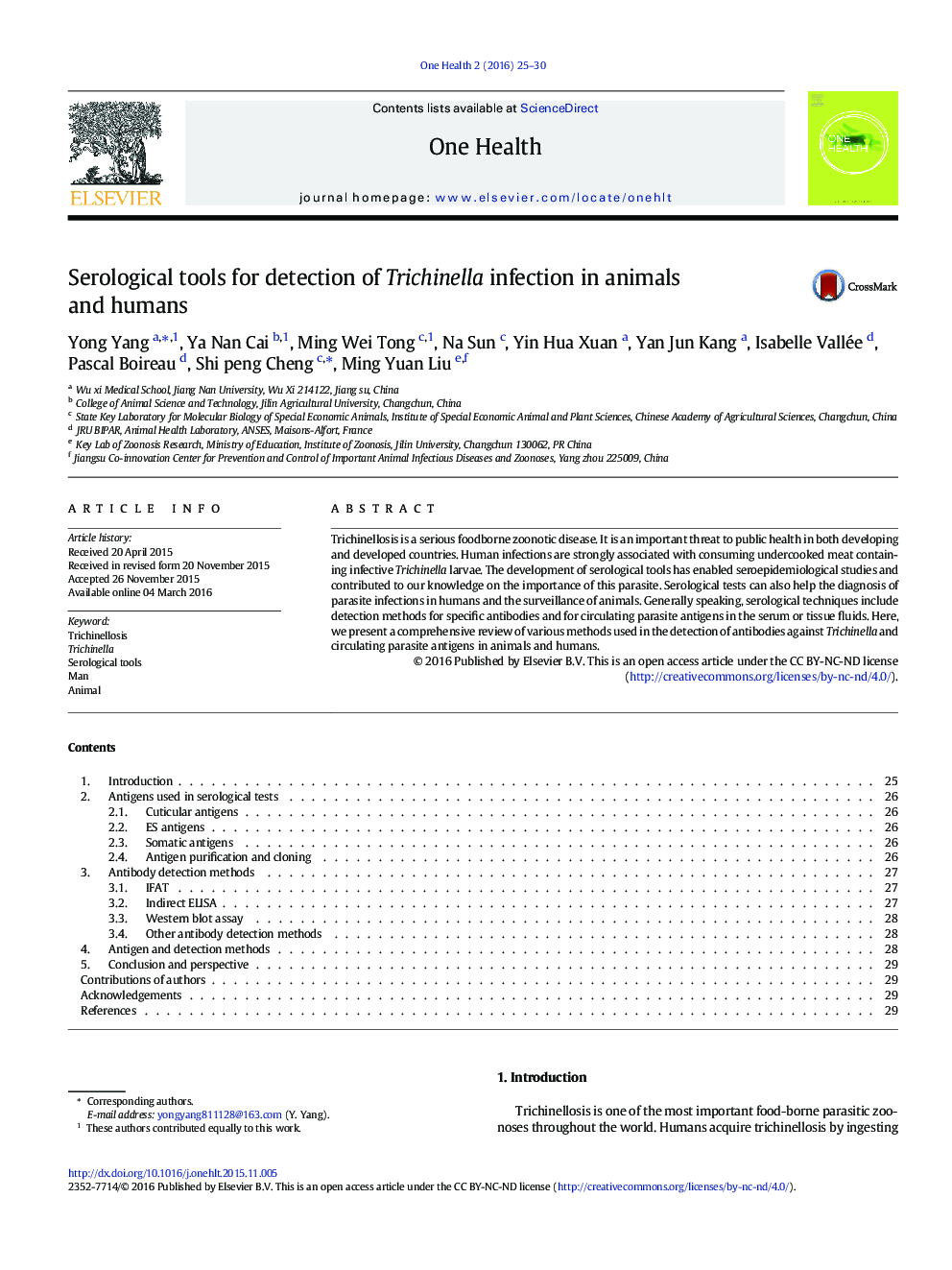| Article ID | Journal | Published Year | Pages | File Type |
|---|---|---|---|---|
| 4360785 | One Health | 2016 | 6 Pages |
•Trichinellosis is considered as a public health problem in several countries around the world.•The development of immunodiagnostic techniques has promoted the conduct of seroepidemiological studies.•This review provides insight into the evolution of these techniques.
Trichinellosis is a serious foodborne zoonotic disease. It is an important threat to public health in both developing and developed countries. Human infections are strongly associated with consuming undercooked meat containing infective Trichinella larvae. The development of serological tools has enabled seroepidemiological studies and contributed to our knowledge on the importance of this parasite. Serological tests can also help the diagnosis of parasite infections in humans and the surveillance of animals. Generally speaking, serological techniques include detection methods for specific antibodies and for circulating parasite antigens in the serum or tissue fluids. Here, we present a comprehensive review of various methods used in the detection of antibodies against Trichinella and circulating parasite antigens in animals and humans.
